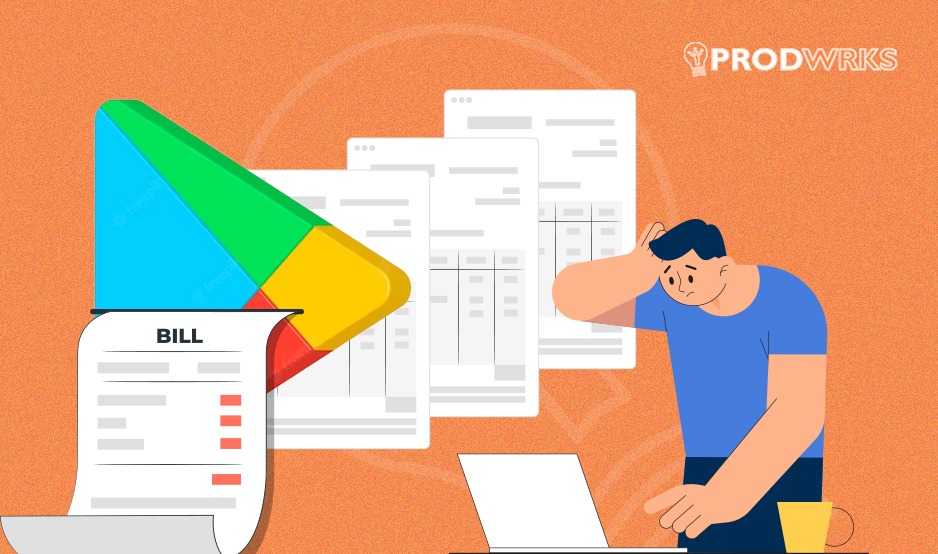
The Android Ecosystem is entirely dependent on the Google Play Store for downloading the majority of mobile applications. This application library is widely used across the world, apart from China, Russia, South Korea, and North Korea.
In the last couple of years, Google has been in the news due to its in-app billing policies and guidelines, which have forced many of its users to seek legal remedies against high commission fees and alleged anti-competitive practices.
In October, the CCI (Competition Commission of India) imposed a $113 million fine on Google and said it must allow the use of third-party billing and stop forcing developers to use its in-app payment system that charges a commission of 15-30 percent.
This action against Google’s controversial policy has sparked a series of legal battles and a series of revisions in the billing policy. But what is Google Play’s billing policy, and why is it so contentious?
Google Play’s billing policy
In September 2020, Google Play announced a new billing policy that required developers to use Google Play’s billing system for in-app purchases of digital goods and services distributed on Google Play. This means developers must integrate their apps with Google Play’s payment interface and accept Google Play’s payment methods, such as credit cards, debit cards, Google Pay, or gift cards.
Developers who do not adhere to the policy will face penalties or removal from Google Play.
As per Google’s webpage, the Google Play Billing System is a must for purchasing digital items (like virtual currencies), app functionality or content, subscription services, cloud software, and more.
Google claims its billing policy and commission fee are necessary to maintain user trust and keep Google Play safe, secure, and reliable. Google says that its billing system enables users to transact with millions of users around the world easily and gives them safe ways to pay and the ability to manage their payments from a central location.
The Controversy
Google Play’s billing policy has faced resistance and criticism from developers and regulators in our country. They argue that the policy and the commission fee are unfair, anti-competitive, and detrimental to their growth and innovation.
Some of the main arguments against Google Play’s billing policy are:
- The 30% commission fee is too high and unjustified. Some developers say that the fee reduces their revenue and profit margins, especially those who offer subscription-based services or low-margin products. They also say that the fee does not reflect the value or cost of Google’s services.
- Some developers say that they should be able to offer alternative payment methods or direct users to their websites for subscriptions without being penalized by Google.
- App makers allege that the policy gives Google an unfair advantage and monopoly over the app market. Some developers say that Google abuses its dominant position and discriminates against rival apps by imposing its own terms and conditions on them.
- They also say that Google leverages its control over Android and Google Play to promote its own apps and services over others.
Google Play claims that its fees are 15% or less for the vast majority of Indian developers, which it says are the lowest rates of any major app store due to the range of pricing programs it offers. It also says that to put this in context, it estimates that less than 60 of the over 200,000 Indian developers on Google Play currently could pay a service fee of above 15%.
Moreover, it says that this fee is further reduced by 4% if a user pays through an alternative billing system to fairly reflect that Google Play’s billing system has not been used.
Some of the prominent apps that have voiced their concerns over Google Play’s billing policy include Paytm, Zomato, Swiggy, Spotify, Netflix, and Tinder.
How does Google’s policy affect Indian App Ecosystem
India is one of the world’s largest and fastest-growing app markets, with over 500 million smartphone users and over 100 million app developers. However, India has also been one of the most vocal and active opponents of Google Play’s billing policy.
The controversy started in September 2020 when Google clarified its policy and announced its enforcement plan. Many Indian developers and start-ups expressed dissatisfaction and resistance to the policy and the 30% commission fee.
The situation escalated when Google temporarily removed Paytm, India’s largest digital payments platform, from Google Play Store for allegedly violating Google’s policy on gambling and contests.
Paytm claimed it was offering its users cashback and vouchers, not gambling, and accused Google of “arm-twisting” and “unfairly” enforcing its policy.
Paytm also launched its mini app store to challenge Google’s dominance and offer more choices to Indian developers and consumers.
Google Play then faced legal and regulatory challenges from the Competition Commission of India (CCI), the antitrust regulator in India. The CCI ordered an investigation into Google’s market power and practices in the app industry in November 2020.
The CCI fined Google $113 million for abusing its dominant position and forcing app developers to use its billing system in December 2020. Google paused the enforcement of the policy in India while reviewing its legal options.
What is Google saying?
Google has responded to some of the concerns and demands of Indian developers by offering some concessions and exemptions.
- Google reduced the commission fee to 15% for the first $1 million of revenue per year for all developers starting from July 2021.
- Google also allowed developers in India to offer alternative payment methods alongside Google Play’s billing system from February 2023.
- If alternate payment methods are used, the commission fee is reduced to 4%.
Google Play’s billing policy is still in effect and enforced globally, except for India, where it is paused pending legal review.
Impact of Google Play’s Billing Policy
The impact of Google Play’s billing policy on the app ecosystem and the user experience is unclear. Some developers argue that the policy and the commission fee reduce their revenue and profit margins, limit their choice and control over their business models and customer relationships, and stifle innovation and creativity. Some users may also face higher prices or reduced quality of service due to the policy.
On the other hand, Google claims that the policy and the fee are necessary to maintain user trust and keep Google Play safe, secure, and reliable. Google also says that the policy and the fee enable it to invest in developing and improving its platform and services for both developers and users.
The debate over Google Play’s billing policy will continue as more countries and stakeholders join the fray. The outcome of this debate may have significant implications for the future of the app industry and the digital economy.




